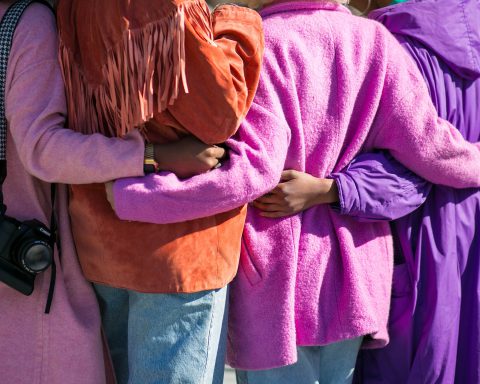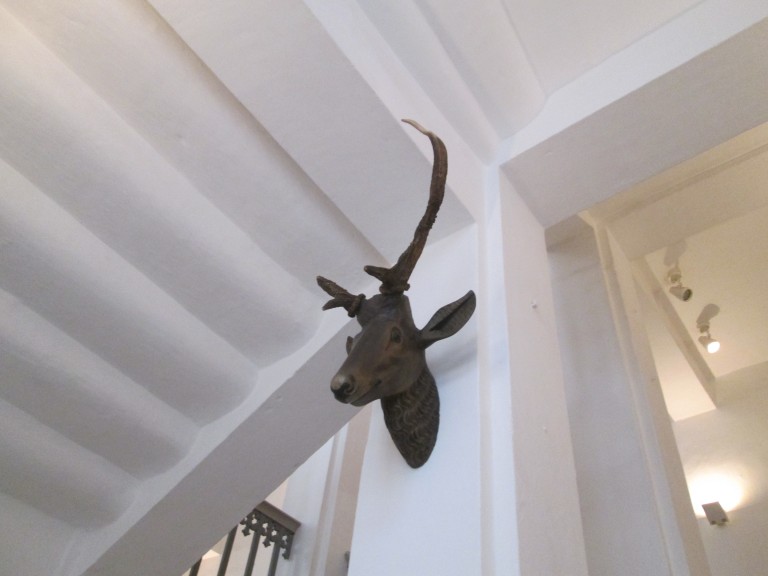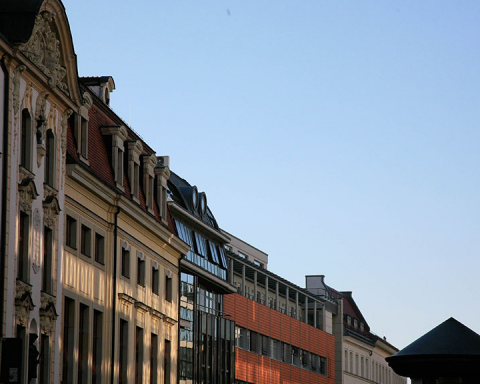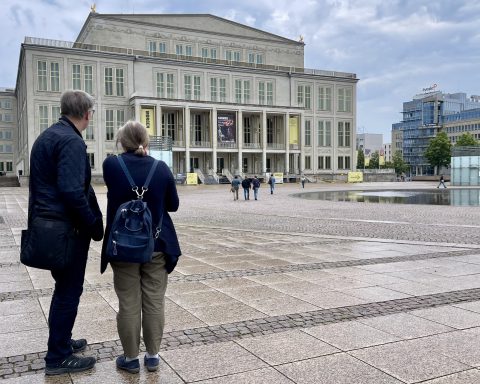Preparing for the walk home from work in Minneapolis was a process of armoring.
After dark, before locking up the café where I spent my evenings pouring latte art for greying Mac users, I would get ready for the ten-minute walk across my residential neighborhood. Leather jacket, knife clipped to my boot, keys placed as my mother had taught me: jutting out between my knuckles and held tightly in my jacket pocket, “just to be safe.”
I walked a walk full of faux-confident swagger past the shadowy city park where my mother used to go jogging with a pistol shoved in her waistband, back when the city had been dubbed “Murderapolis” for its high gun crime rates.
The “better-safe-than-sorry” approach to urban navigation was the norm amongst my female-identified peers in the United States. Hoodies and sweat pants to obscure curves and combat cat-calls, cycling in the middle of the street to avoid being pushed off your bike and mugged – or worse.
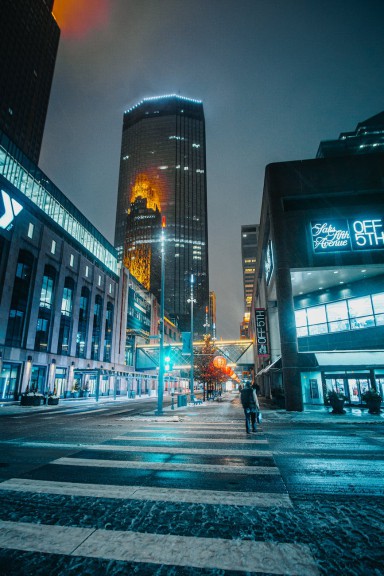
In my early twenties, there was a blossoming trend in cat-shaped keychains that could be worn on the knuckles, whose pointed ears were meant to deliver a blow to the eyes of assailants.
Another soaring, disconcerting trend emerged with crowdfunding as a way to cover the medical bills of friends who had been assaulted.
These precautions and fears, though still in the back of my mind, are not nearly as urgent living here in Germany as they were for me in the United States.
I don’t have a routine to protect my body when I leave my workplace or home in Leipzig because, although of course crime happens everywhere, I generally feel much safer here.
What the statistics say
I stepped into womanhood wary and alert, practiced in the art of walking with confidence and emitting a certain hardness, having been warned against “looking like a victim.” And of course, in spite of all precautions, the armor had already failed the countless millions of us who, as girls, knew violation under the hands of men or boys before we had a name for it (#MeToo).
The World Health Organization (WHO) estimates that about 1 in 3 women (35%) worldwide have experienced sexual or other physical violence in their lifetime. Violence against women has always been and continues to be a widespread problem, one which takes on a different face in every corner of the globe.
Earlier this year, I stumbled across a few reports that attempt to put gender inequality into facts and figures: namely, the World Economic Forum’s Global Gender Gap Report and the United Nations’ Gender Inequality Index.
Each report examines various criteria in order to rank countries on the relative position of women in society compared to men. The Gender Gap Report focuses less on health and education indicators and more on economic or political power, while the Gender Inequality Index also takes maternal healthcare into account.
So, how do you measure something like feminism or inequality? How do you measure power, or for that matter, fear? How can you tally up the cat-calls or all the molestation kept secret?
As it turns out, neither report pretends to measure how safe a woman is in her home and on her streets, or the restrictions placed on her body or activities by cultural or religious norms. Rather, they measure access to resources such as labor market participation, education, parliamentary seats, and basic rights compared to men, as well as maternal healthcare.

The rankings for each of the countries I have lived and worked in do fit my experiences, for the most part, although these reports seem to be missing some key parts of the puzzle.
After all, isn’t the measurement of gender gaps essentially incomplete, fundamentally skewed, without taking into account women’s bodily safety or ability to choose her own paths in life? What about complex, culturally influenced issues such as child marriage or forced marriage? What about rape or sex trafficking?
How can one claim that the gender gap is comparatively small because there are women working in legislation, if those same women go home from their workday to abusive husbands?
While these reports are not all-encompassing, they do give some idea of where women stand globally, and which countries seem to be narrowing the gender gap.
Throughout my twenties, I lived and worked in the United States, India and France, before settling in Germany. Each new country has revealed a new dimension of womanhood and has given me some small, subjective insight into what it means to be female across different societies.
Seeing my impressions echoed in the cold statistics of these reports has helped me to put my experiences into perspective.
It has also reinforced the impression that, although it is far from perfect, Germany is the most feminist country I have ever lived in.
Germany is in 12th place on the Gender Gap Report and 4th on the Gender Inequality Index, preceded only by Switzerland, Australia and Norway.
So, what makes it so special? How do the other countries I’ve lived in measure up to Germany, both statistically and anecdotally? And do the rankings seem representative of my experiences there?
The United States, my home country, sits at 49th place for gender gaps: ranking behind both Uganda and Bangladesh, sandwiched between Peru and Zimbabwe. On the inequality index, it comes in at 10th place, between Canada and China; a rank that I find surprisingly high, considering the level of gender-related problems and fears I have had there.
Women’s personal experiences
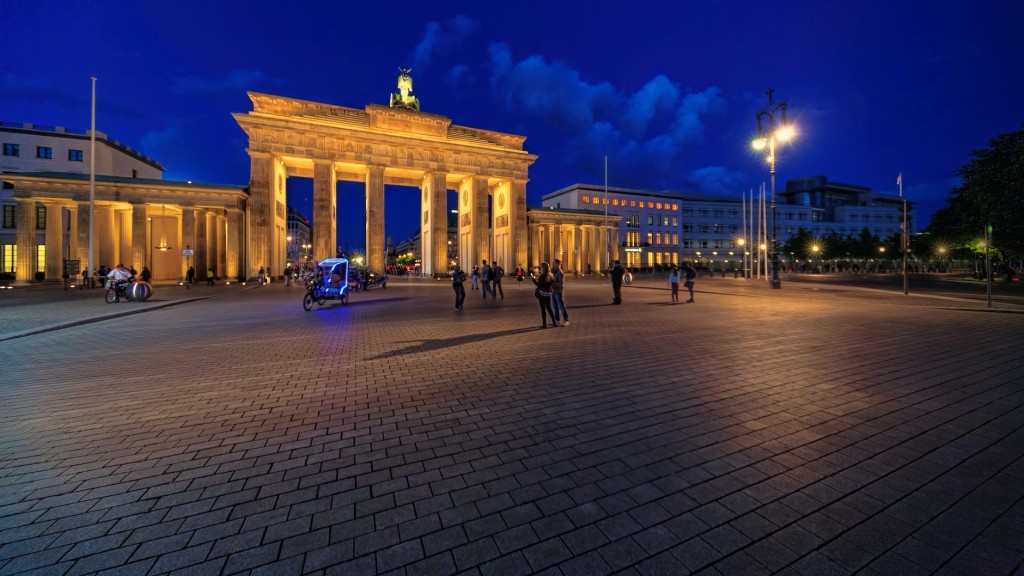
Of course, my experiences aren’t representative of everyone. I have a position of privilege as a white, US-American woman from a middle-class family. Without a doubt, my experiences across the board would have been very different if I belonged to a different demographic.
Kim, an American teacher and blogger of mixed Mexican and Chinese background living in Berlin, shares some of her impressions of sexism in Germany:
“Compared to the US and Latin America, sexism and gender equality is much better in Germany. That does not mean it’s perfect and I definitely have experienced sexism here, but it seems to be softer than in the other places. […] In the US and Latin America, it seems like men will persist long after you’ve told them no (at least in my experience). […] There is also the idea of ‘if I do X for her, then I will have fulfilled all the requirements and she will owe me sex.’ This way of thinking is definitely present in Germany as well, but overall men in Germany seem more comfortable with being told no.
“[…] Another difference I noticed is that I feel more comfortable with my body here. In the US and Latin America, any time I wanted to wear a cute dress or anything that showed skin I felt like I had to brace myself for the catcalls, slut-shaming, slow up-and-down looks, and general you’re-obviously-begging-for-attention kind of treatment. At least in Germany, people aren’t as aggressive about it.”
Because of this, Kim was “not surprised” that the US ranked so low on the Gender Gap Report compared to her new home in Germany.
“That being said,” she adds, “I am also a woman of color in a predominantly white country. I feel like I’ve gotten more attention, both good and bad, than a person who looks like they belong here would get.”
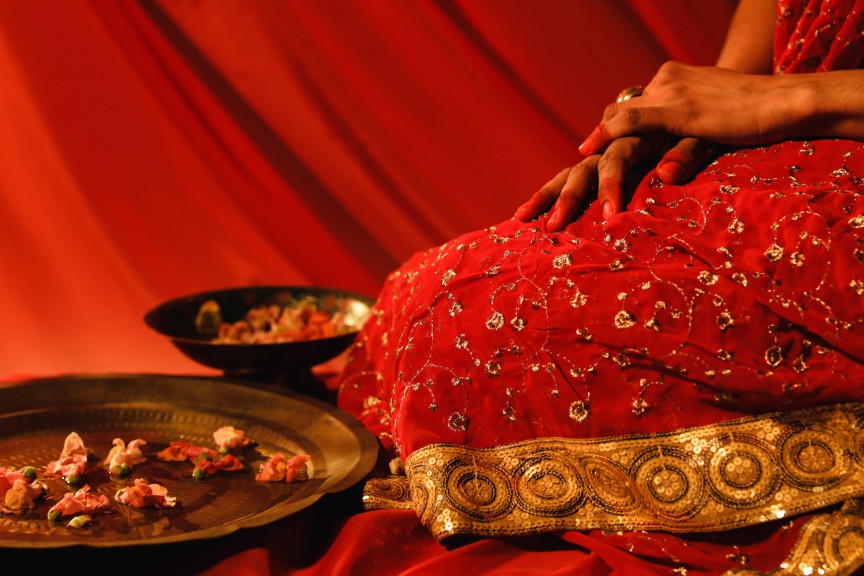
Looking like I “don’t belong” is something I could relate to through my experience living in Madurai, India.
However, my obvious foreignness did not make me as much an oddity in this traditional, religious, south Indian city as the fact that I was a young, single woman living alone – something my Indian peers could not begin to imagine. I was regularly asked if my father had already chosen a husband for me, or whether I would be married immediately upon my return to the States. The complaints of my female Indian coworkers painted a picture of their status: not being able to marry their sweetheart because of parental disapproval, waking up at 4 a.m. to complete their household duties and prepare and pack lunches for their family before heading off to their full-time teaching job, the wages from which their husbands took.
Stripped of the bluntness of my American armor in all its sharp edges, my tactics for self-preservation in Madurai became a kind of resignation. The struggles of womankind were omnipresent. I was more restricted than I had been in my hometown, and yet remained far freer and more privileged than the women all around me.
Women, including myself, wore traditional, modest clothes. They were not to drink or purchase alcohol, and were rarely seen socializing outside their homes without their husbands. In the end, it was men who drove me away from Madurai: the final straw had been repeated incidences of peeping toms climbing up to the ledge of my bedroom window to spy on me at night.
In India, it was not so much fear of violence as the constant feelings of isolation, objectification and restriction that made womanhood so difficult. India’s rankings on the Gender Gap and Gender Inequality reports? 131st place for inequality and 108th for gender gaps, the lowest-ranking country I’ve experienced as a resident.
Objectification took on yet another face for me in France.
I was definitely as conscious of my gender role there as I was in India, and much less so than I am here in Germany. In French society, my armor was not hardness, not resignation, but an over-saturated breed of softness: was femininity itself. Again, I tried to do as the locals did. And the locals were chic.
France ranks 21st on the inequality index, behind both Germany and the United States; and one place above Germany, at 11th, for gender gaps: a far cry above India in both reports.
Where in the United States I had thought nothing of going out wearing sweatpants or without makeup, this seemed frowned upon in both Montpellier and Paris. So I powdered my nose, shined my shoes, wore scarves and lipstick. Tried very hard to be pretty, to measure up against the societal beauty standards perpetuated by my fellow women and plastered on every advert in France.
The adoption of this jolie fille uniform was just another form of the traditional garb I had to wear in India. It seemed to me that in order to respect local culture, I had to accept the gender role prescribed to me.
I was very often complimented on my appearance, and rarely on my thoughts or accomplishments. This felt like its own kind of constriction, the insidious and constantly reinforced idea that I was expected to look and behave in a certain way that others found pleasurable.
Such slippery, intangible forms of disempowerment or subtle deference to male supremacy (like having to dress a certain way to avoid male harassment or to receive respect) are, I think, impossible to measure.
Street harassment was a regular nuisance in France, worse than I had experienced in the States.
One hot afternoon in Montpellier, I wore an average, thigh-covering pair of non-scandalizing summer shorts. I never wore them again because of how many times I was harassed and cat-called on the streets that day.
In Paris, street harassment was more serious: I was regularly touched, grabbed, pulled, yelled at, followed, and once even restrained, then struck and shoved to the ground in broad daylight.
The problem is so widespread in the country that a new law is in the works, championed by French Junior Minister for Gender Equality Marlène Schiappa. It would hit cat-callers with an on-the-spot fine between €90 and €750.
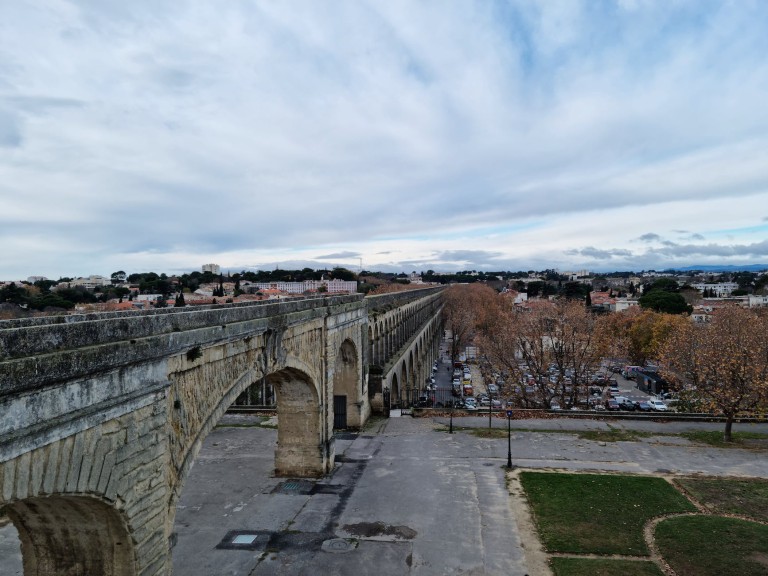
Arbel Ifhar, the Israeli left-activist who runs Kulthum (a non-commercial vegan feminist safe space bar in Leipzig’s Alt-Lindenau), chimes in on the issue:
“In Germany, it’s clear that there is less street harassment. On the beach in Israel, of course it’s clear that you couldn’t be naked and be free from comments or looks the way you can in Germany. In Israel, there’s no chance in the world that a woman could sit topless or naked and no one will look at her, no one will spit on her, nothing will happen.”
Arbel attributes this partly to the strong “macho culture” in Israel and partly to a difference regarding personal space and boundaries in German vs. Israeli culture.
“In Israel, I get attention for being a woman, but that becomes much more when I’m a queer woman holding hands or kissing another woman. […] You feel you are something different in the public space, you are something noticeable. There’s more openness here in a way, especially to queer people. But I don’t know if it’s openness or politeness. So I can’t know if someone isn’t bothering me because they’re respectful of women, or if it’s just the personal space boundary or lack of willingness to get involved with other people’s business.”
There seem to be many parallels between Israel and the United States when it comes to street harassment. Arbel notes: “Harassment is a symptom. The problem is there regardless of the cultural group. There are just different symptoms.”
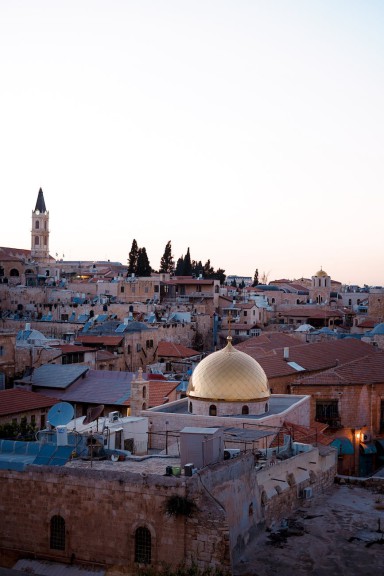
Of course, because of the military tension in Israel, there is a whole set of additional concerns. When walking alone at night, Arbel explains, “it’s frightening. I did a BA in Media Journalism and Geography. I did an interview-based research project on how lesbian women in Jerusalem change their walk paths. And 100 percent of the women will think about [threat levels]. As an Israeli, and of course much more as a Palestinian, we are used to walking in fear in the public space. Of course, for women there is a whole other level of fears that we think of. As a woman, if I walk in the street at night, I have fears of being raped, stabbed… I wouldn’t walk a lot alone at night. I remember there was a point where I accepted this danger, this burden, ‘Well I’m a woman, there is a chance I will be raped, I need to live with it. I can’t control it.’”
Arbel, with her background in political activism, says that although she knows that the police in Germany can be brutal, she is much less afraid of them and has been treated with more respect by German police than their Israeli counterparts, who are quick to resort to violence and aggression. She also notes that “[in Germany,] it was the first time I felt in demos, that I was on the strong side, that I was the majority. So I wasn’t afraid of being attacked because I wasn’t the weak one.”
I think that one of the biggest reasons why Germany is such a relatively empowered and empowering place for women is that people are vocal about problems, people are critical of the status quo, and also protests and political demonstrations are commonplace. In other words, there is a space for people to voice their concerns and for women to be heard when they say that the status quo just isn’t good enough.
In the three years I have lived in Germany, I have never carried my keys between my knuckles.
I have never been afraid of being stabbed or shot, although I do not live under the illusion that these are impossibilities. I have rarely felt unsafe in the streets at night, although I lived at Kottbusser Tor, which is reputed to be the roughest part of central Berlin. I have been cat-called once, I repeat, once, in the last three years (by an Italian.) I have not had to tell any men to stop following me, or to leave me alone, or to let go of me, or to get off my windowsill.
I have not felt that I need to dress or act in a certain way because I am a woman, nor have I been criticized or harassed for my appearance or my choice of outfit. (Of course being shouted at for general rule-bending is another issue altogether. Raise your hand if you’ve been shouted at for crossing streets before the Ampelmann turns green!)
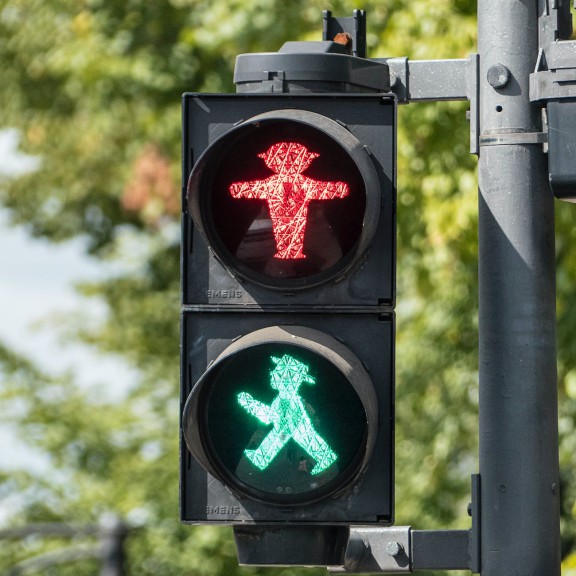
This feeling of freedom in my clothes and in my body was especially strong on the subcultural, multi-kulti island that is Berlin, where it doesn’t seem to matter to anyone who you choose to be or how you choose to express it. For its many faults, I certainly felt that Berlin was a liberating place to live. (As for Leipzig, well, the jury’s still out.)
My experience here, however subjective and privileged, has been one of greater freedom and an increased sense of safety.
When I meet someone for the first time, they often ask why I live in Germany and if I plan to stay. There are many ways in which Germany has been challenging, but the sharp contrast between my life as a woman in Germany compared to my experiences in the United States, France and India is one of the biggest reasons why I’m still here.
Of course, women in Germany, especially those in marginalized communities, still face the same challenges and struggles as women all around the world. At the same time, discontent with the status quo seems to be widespread enough to inspire countless feminist spaces, organizations and demonstrations: signs of slow but positive change.
I have felt safer on the streets, more secure in my body and appearance, experienced less harassment, and have generally been treated with more respect here than anywhere else I have lived. In spite of the general over-enthusiasm for sausage and sauerkraut, the somewhat inhospitable or reserved nature of German society, and the sometimes infuriating insistence on Ordnung; all stereotypes aside, this is a place where I would feel good about raising daughters.
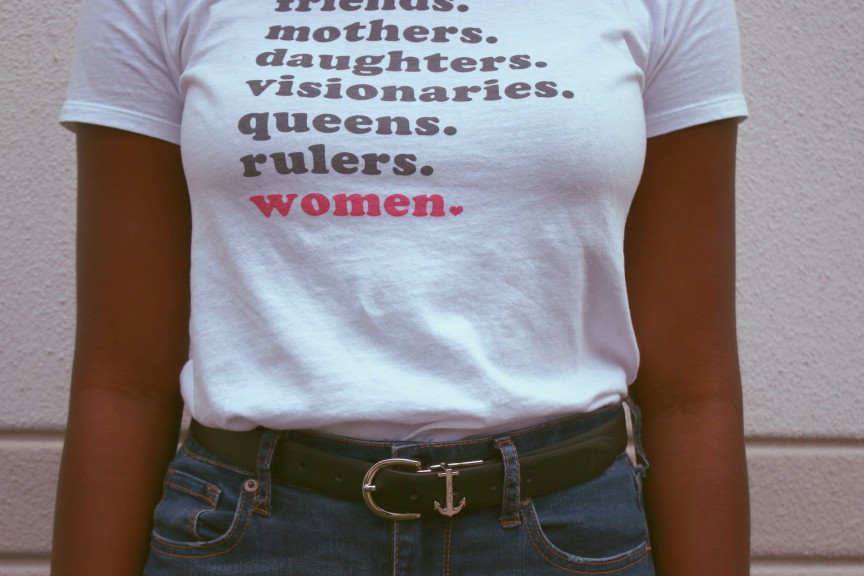
By Sarah Rosemary Anagnostou
Sarah Rosemary is a native of Minneapolis, USA, and recently relocated to Leipzig from Berlin. She has a degree in Global Studies, French Studies and Teaching English as a Foreign Language, and works as an English language teacher and yoga instructor. She has always had a passion for the written word and has recently started archiving scraps of writing as @rosemarywrit on Twitter and rosemarywrit.wordpress.com

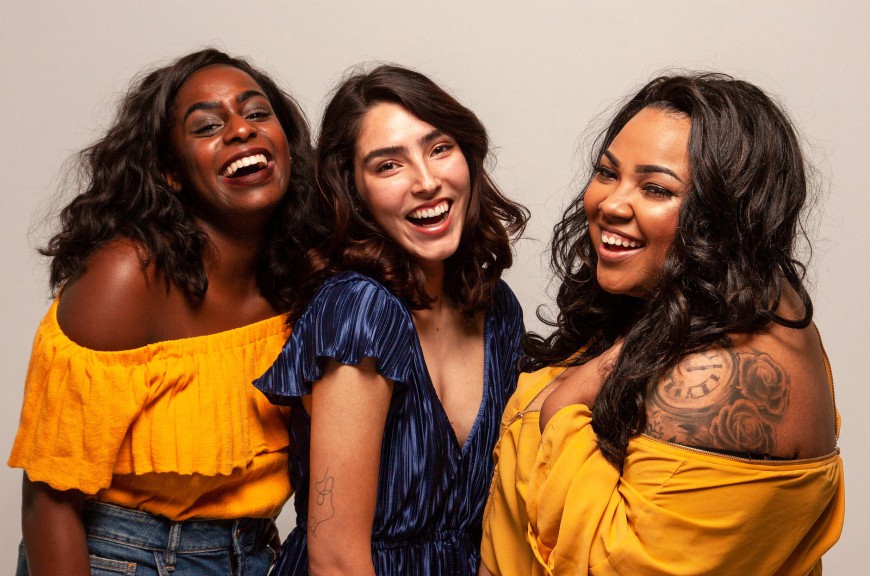
![Wine & Paint event on 9 Nov. 2024 at Felix Restaurant, Leipzig. Photo: Florian Reime (@reime.visuals] / Wine & Paint Leipzig](https://leipglo.com/wp-content/uploads/2024/12/pixelcut-export-e1733056018933-480x384.jpeg)

